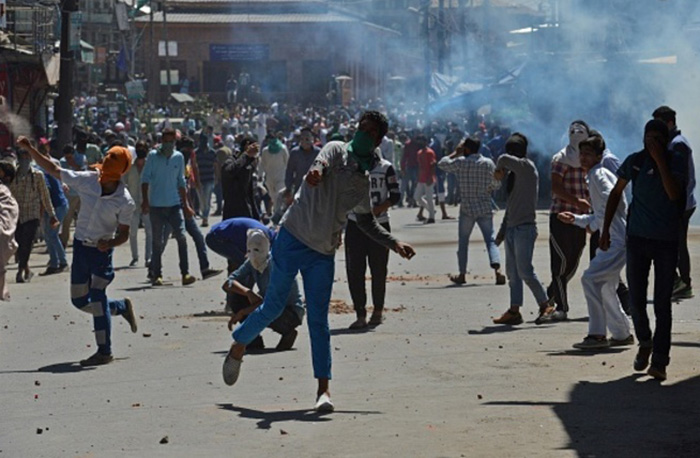“The conflicts and tensions in Kashmir can only be resolved through peaceful ways and dialogue,” Qassemi said, according to a report by the Foreign Ministry’s website, as translated by IFP.
He also called on both sides of the conflict to show self-restraint.
In the recent clashes between in clashes between security forces and protestors, at least 42 people have been killed, and thousands of others wounded.
Thousands of armed police and paramilitary soldiers in riot gear patrolled the streets of Srinagar, the summer capital of Jammu and Kashmir State, as well as Anantnag district in the south to enforce the curfew on Friday.
Indian authorities also blocked mobile phone services to prevent further protests after Friday prayers across the Muslim-majority region.
The state government has ordered restrictions on the movement of people and traffic in several parts of the valley. It said in a statement that only people involved in medical emergencies would be allowed to travel across the troubled region.
Clashes erupted after Burhan Wani, a top figure in the pro-independence Hizbul Mujahideen (HM) group, was killed along with two others in a shootout with Indian troopers on July 8.
Anti-riot troops have used live ammunition, pellet guns and tear gas to disperse the crowds and calm down the outrage over the past few days.
At least 42 people are now confirmed dead and over 2,000 others injured following days of violent clashes between protesters and Indian forces. Medical sources have expressed serious concern that a severe lack of blood donations and life-saving medicines could cause more deaths.
Kashmir has been at the heart of a bitter territorial dispute since India and Pakistan became independent in 1947.
New Delhi and Islamabad both claim the Himalayan region in full, but rule parts of it. The two countries have fought two wars over the disputed territory.
The last bout of serious violence in the scenic valley was in the summer of 2010, when more than 100 people died in anti-India protests.
